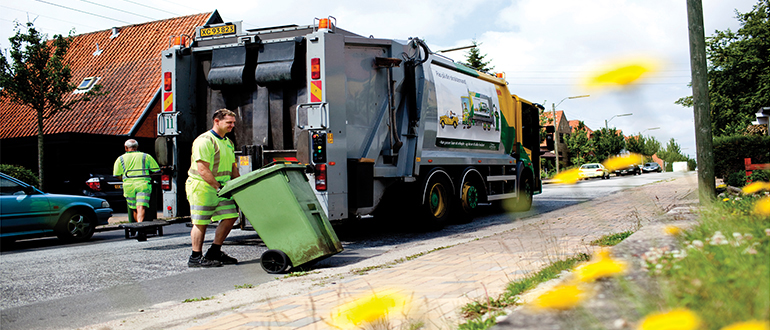Ioannis Moiras
Master thesis - Environmental engineering - 2018
A consequential Life Cycle Assessment (LCA) of the management of 55,789 tonnes of household waste including only kerbside collection and glass drop-off containers was conducted in accordance with ISO 14044:2006 and the ILCD Handbook for Odense municipality. Five scenarios in total were built, including the existing system, representing different collection schemes and waste management practices. Odense Renovation A/S provided data regarding household waste compositions and household sorting efficiencies. For collection, waste treatments, recycling, electricity and heat composition, and technological efficiencies, data were collected from a range of sources.
The objective of this thesis was to assess the environmental performance in the different scenarios and analyse the causes of the main environmental impacts and differences which affect the results. The LCA was conducted using the EASETECH LCA model developed by DTU Environment for the environmental assessment of waste management systems and environmental technologies.
Results indicate that in all scenarios household waste management provides environmental benefits when considering the benefits of recycling of materials, recovering and utilization of energy. Environmental benefits come from paper recycling and, to a lesser extent from the recycling of metals, plastics and glass. Waste-to-energy plants lead to an environmental saving, due to the substituted energy which is based on coal. In the sensitivity analysis, it was assessed what the impact would be if marginal electricity were not based on coal, but instead on electricity mix or wind power.
In conclusion, the household waste management is environmentally the best when implementing source-separation and recovered materials and energy. In the future, greater emphasis should be placed in the material recycling since Denmark is eliminating fossil fuel-based energy. Scenario 4 showed the best performance for the future since the recycling rate was the highest due to the implementation of a residual waste sorting facility prior to the incineration. From an environmental point of view, less focus should be placed on where the waste is routed and more on the quality and exploitation of recovered materials and energy.
Collaborating partner
Odense Renovation A/S
